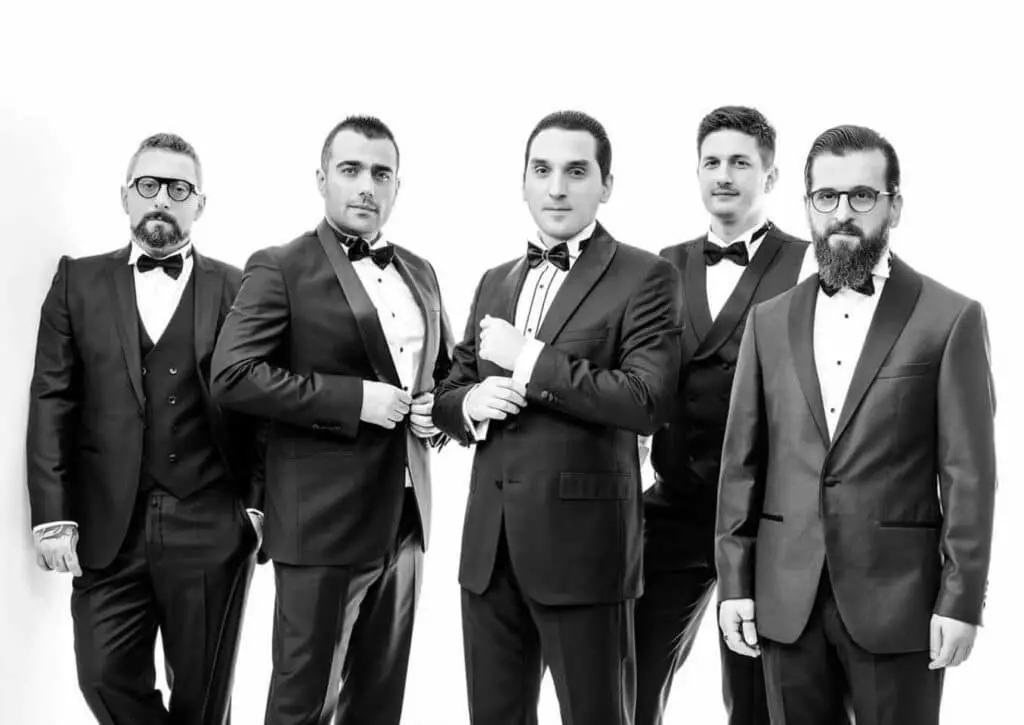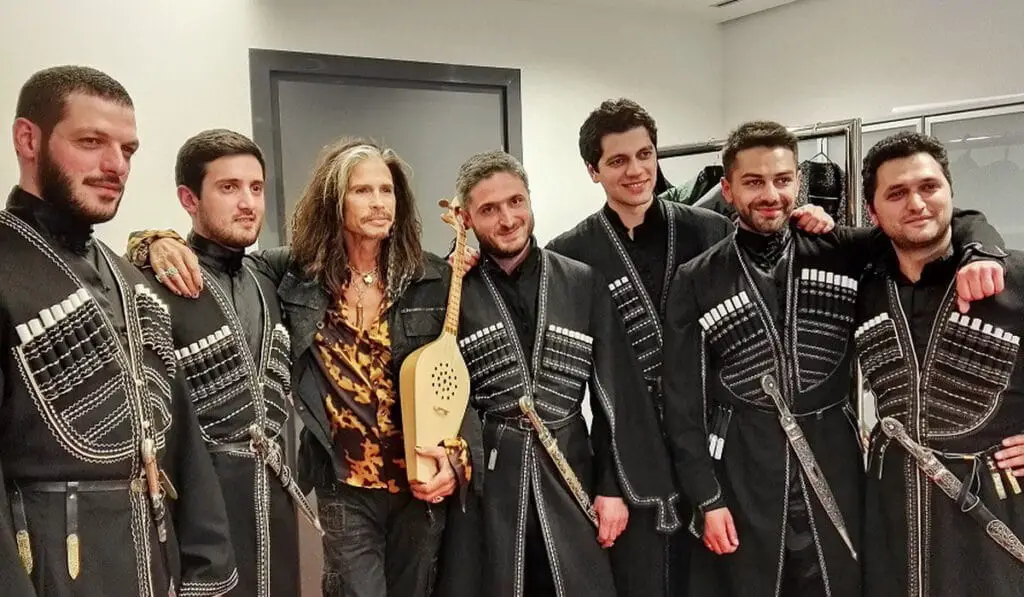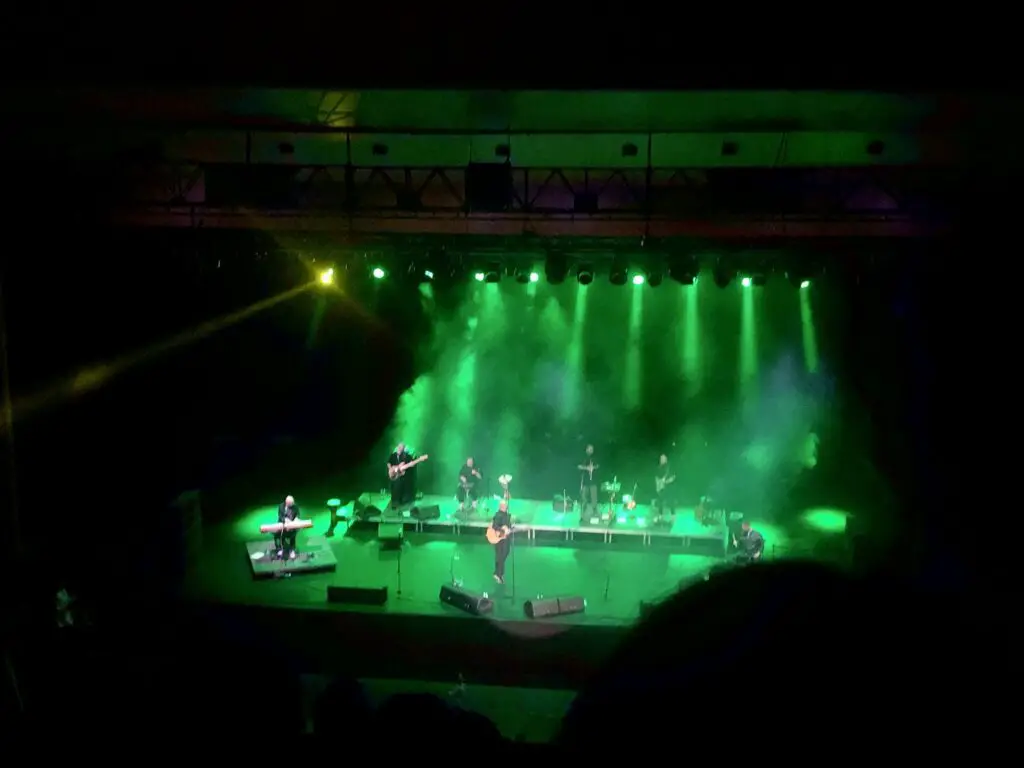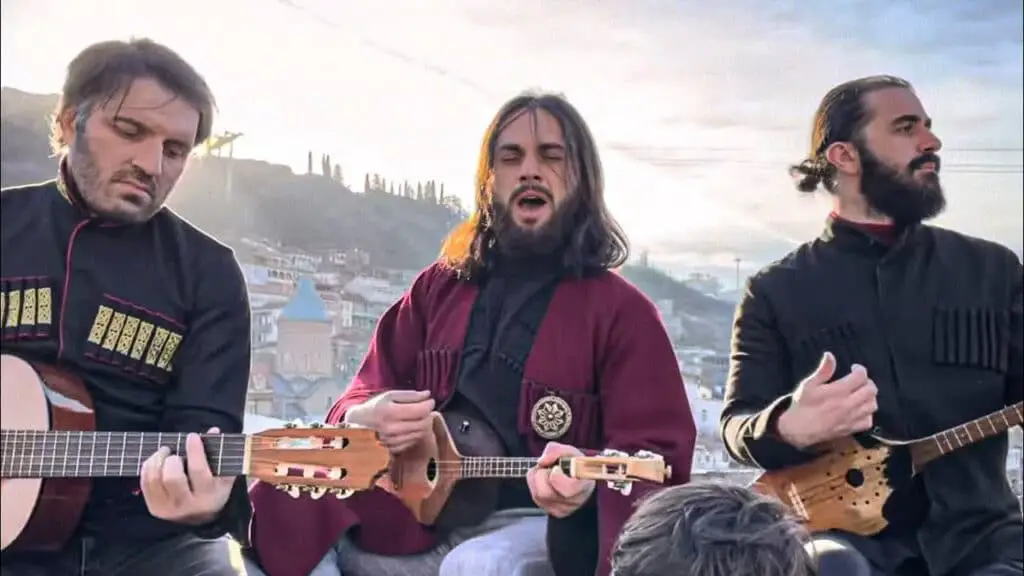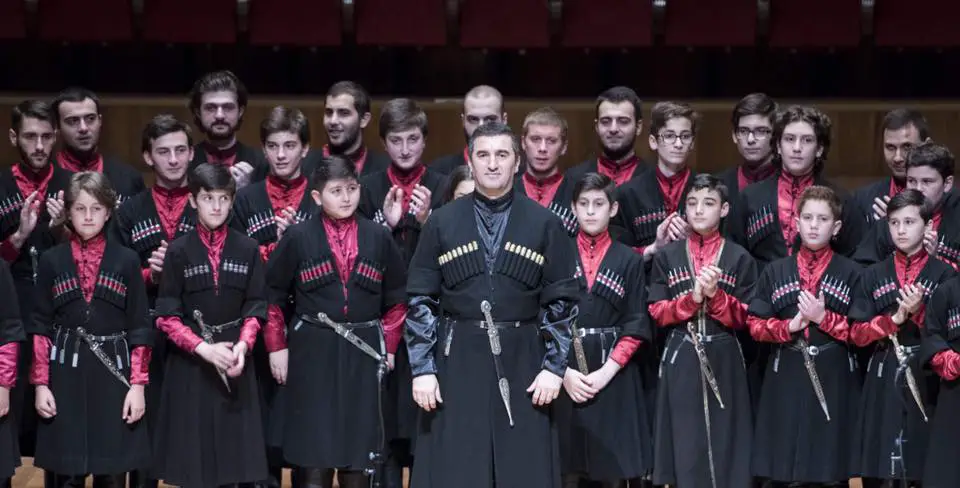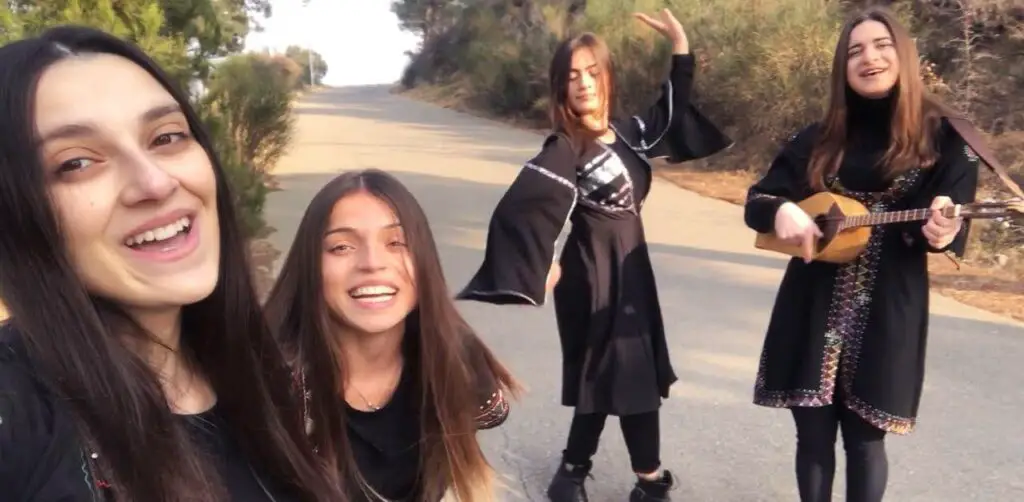Georgian polyphonic singing, added to the UNESCO Representative List of the Intangible Cultural Heritage of Humanity, is a musical technique in which a single song has several melodies, each sung concurrently, with no one tune dominating the others. In Georgia, the style varies by region, but the practice reflects both military, folk, and religious culture. Some presentations will feature instrumentation, but often will only be performed a cappella.
Staple songs include the Chakrulo, a pre-battle hymn now sung at festivals; the Naduri, a work song; and Alilo, a Christmas carol.
Polyphonic music is complex and difficult to compose and perform. Georgian polyphony can reach incredible levels of complexity, with so many elements blending together that it can sound almost like Orthodox church bells. The result can be mesmerizing but also sometimes unsettling, especially to an untrained ear.
The tradition is dear to Georgian culture and many Georgians are working to make sure that it can survive for future generations. This includes bands blending its techniques with modern musical styles like rock and jazz, it includes organizations teaching the style to youth, and it includes many artists performing their heritage on crisp and vibrant YouTube videos.
Below are five examples of these Georgian artists.
Iriao – Georgian Jazzy Eurovision Stars
By Julia Stevermer
Spotlights illuminate five figures on the stage at the Semi-Final of the 2018 Eurovision competition. Clad in suits, the members of Iriao evoke an old-world sophistication as they perform “Sheni gulistvis” (“For You”) for an audience of over 186 million. The song makes history as the first Eurovision song to be performed entirely in the Georgian language.
Formed in 2014, Iriao grew in popularity after performing at the Borneo Jazz Festival in Malaysia during the same year. In 2018, the band was selected by the Georgian Public Broadcaster (GPB) to represent Georgia in Eurovision, a European music competition in which winners are determined by jury and televote.
Although Iriao did not advance to the final round of Eurovision, their performance highlighted the richness of Georgian musical culture on a global stage and remains significant four years on. Iriao blends traditional Georgian polyphonic singing with soft jazz, creating a signature style that is both mellow and engaging. Try, for instance, the upbeat and jazzy “Little Gurian Shue” or the more experimental but still enjoyable “Kin-dza-dza,” based on a famous Soviet sci-fi movie.
The band’s name come from “iriao-uruao,” a common refrain often included in traditional Georgian polyphonic folk songs.
The band is often credited as being one of the early entrants to the scene of updating polyphonic singing. They’ve also generally been one of the most successful at making a name for themselves.
Led by David Malazonia, the band has had a fluid cast list since its inception. The cohort that performed at Eurovision included keyboardist Levan Abshilava; guitarist Shalwa Gelekwa; and vocalists Mikheil (Misha) Jawakhishvili, Bidzine (Buba) Murgulia, and George Abashidze. The above performers have known each other since they were four or five years old.
Geo Folk Tour – Rocking Polyphony Ambassadors
By Ellie Kline
Geo Folk Tour refer to themselves as the “Ambassadors of Georgian Polyphony.” This six-member traveling musical project has a singular goal to popularize Georgian culture abroad via the ear-catching powers of Georgian polyphonic singing.
The band has been quite successful in reaching out to western audiences by adapting western classic rock hits to the polyphonic style, creating something at once known and new. They combine these with slickly shot YouTube videos featuring the band in studio or playing characters in one of Georgia’s varied and always breathtaking landscapes.
For instance, their unforgettable version of Aerosmith’s “Dream On” actually caught the eye of Stephen Tyler, leading to their sharing the stage in 2018 – and the picture used above.
Geo Folk Tour also arranged and recorded a well-received mash-up Led Zeppelin‘s chart-toppers “Kashmir,” “Rainbow,” and “Immigrant Song.” By drawing viewers in with Zeppelin’s name recognition but staying true to their own roots, Geo Folk is able to educate a wide audience about unique aspects of Georgian culture— the song’s ambitious music video, for example, is filmed in iconic locations across the Georgian countryside, including the David Gareji Cave Monastery Complex, the ancient fortress of Ujarma in Kakheti, and the ruins of the ancient city Bagineti, once known as Armazi.
They have also reached to the east, recording a versions of Chinese and Japanese folk ballads. The video for the Chinese “Kang Ding Love Song” features Chinese actors playing the roles while dressed in Georgian traditional dress. For the Japanese “Sakura,” the band is shown in a bamboo landscape and a woman shown creating a traditional Japanese water color with what looks like Georgian wine. This, they say, shows a unity between ancient cultures.
The band also focuses on native songs, focusing in large part on traditional Georgian religious music, which forms much of the foundation for their style. One of their most-viewed Georgian-language YouTube videos is a famous Orthodox hymn, “ნათელი მხიარული,” or “O, Gladsome Radiance.”
They also offer classes on Georgian polyphony, offering students “deep immersion in the culture and ethnography of Georgia” by exploring “the background of the rich nature of the country” and its “diversity of folklore,” claiming that it’s Georgian music specifically which holds “the secrets of understanding the soul of the ancient country of Georgia.”
Their name, Geo Folk Tour, implies their focus on traveling to spread awareness of Georgian culture. However, when not traveling as far afield as China and Ukraine to spread the good news of Georgian polyphony, the Geo Folk band perform at private events, like weddings, birthday parties, and marriage proposals.
The band’s lineup includes: Giorgi Tsertsvadze (tenor vocalist), Giga Jalaghonia (baritone vocalist), Vakhtang Tsetskhladze (baritone vocalist), Tato Zananashvili (tenor vocalist), Giorgi Papunashvili (tenor vocalist), Bejani Tsintsalashvili (baritone vocalist), and David Dvaladze (bass vocalist).
Mgzavrebi – High Energy, Happy Polypony (in Concert!)
By Anna Trowbridge, The University of Vermont
On Saturday, April 13th, 2024 myself and 6 other SRAS students had the pleasure of attending a concert by Georgian band Mgzavrebi at the Tbilisi State Concert Hall. We had been made aware of the band and the concert by our SRAS program manager and were recommended to go as a way of seeing a very popular piece of modern Georgian culture while on our study abroad program in Tbilisi.
Mgzavrebi (which translates to “Travelers” in English) was founded by Gigi Dedalamazishvili in 2006 in Tbilisi. The band blends traditional Georgian polyphonic singing techniques and traditional Georgian instruments such as the three-string panduri with modern rock, making their style a uniquely blended version of Georgian folk rock. This, combined with their high-energy concerts and often nationally-conscious lyrics have made the band a huge hit on the modern Georgian music scene.
Originally made up of just three musicians, over the years, the group’s membership has fluctuated from up to 15 members to the current seven: Gigi Dedalamazishvili (songwriter, guitar, vocals), Lasha Dokhnadze (percussion, vocals), Misha Megrelishvili (recitation, shaker), Dato Gogelia (bass guitar, harmonica, vocals), Bezho Amiranashvili (vocals, electric guitar, panduri), Guga Kublashvili (vocals, panduri, flute), and Dato Ugrekhelidze (vocals, keyboard).
If the crowd at the Tbilisi State Concert Hall is anything to go by, it certainly seems that Mgzavrebi is beloved by Georgians. The show sold out well ahead of time and the concert hall was packed with people of all ages, who sang along with and applauded every song with a level of enthusiasm one might expect for an encore, from as soon as the band took to the stage to their final bow.
Mgzavrebi’s energy was immediately warm and welcoming, due especially to lead singer Gigi Dedalamazishvili, who seemed genuinely delighted to be there and kept the audience laughing and at ease the entire night. Although we could only pick up on a small portion of what was being said due to it all being in Georgian, the underlying sense of mutual love between the audience and the band was unmistakable. People streamed into the space directly in front of the stage to dance and nearly everyone in the balcony section (where we were) was standing and dancing in place for much of the night.
One thing that I am learning to expect in any group setting in Georgia, whether it be watching the national football team earn its place in the European Championships, enjoying a Georgian national dance and song performance, or attending a rock concert, is that the likelihood is high that you (alongside everyone else) will end up hollering “Gaumarjos” or, better yet, “Saqartvelos gaumarjos,” which basically translates to “Victory to Georgia,” and is a common toast and general rallying cry.
Internationally, according to their Spotify profile, while the majority of Mgzavrebi’s listeners are based in Georgia, this is followed by Turkey, Poland, Germany, and Ukraine, where there are substantial diasporas of Georgians. Even Georgians outside the country have made connections with this band.
The deep pride in and love for their country and culture is evident anytime one takes part in a public event alongside Georgians – the feeling truly is palpable. I wholeheartedly recommend Mgzavrebi to anyone and everyone, whether you are already interested in Georgian music, language, and/or culture, or are just looking for something new to listen to. Mgzavrebi’s music runs the gamut of joyful, groovy, contemplative, and hopeful, and continues to be fresh and modern while staying firmly rooted in the ancient and storied musical heritage of Georgia.
Bani Hill Band – Making Georgian Folk Rock
By Ellie Kline
Bani Hill Band sings Georgian folk music with a vibrant and genre-bending use of bass, keyboard, percussion, and guitar. The result is traditional music tinged with a catchy rock-like flare.
Bani Hill Band introduces new audiences – both domestically and internationally – to culturally-specific and often little-known Georgian polyphonic folk music.
The band’s name “Bani” actually comes from the Georgian word for “low note,” in reference to the high value typically placed by traditional Georgian music on vocalists with very low ranges. The deepest-voiced vocalist plays a key role in any Georgian singing group. In Bani, it’s Besik Kvitsiani who sings the lowest note while all other melodies and harmonies are carefully built around his lead. Besik also plays the accordion.
The group’s other six members, hail from both East and West Georgia: the vocalist Beso Metreveli, bassist Goga Nikoladze, vocalist Gela Gogishvili, vocalist/keyboardist Besik Kvitsiani, drummer Beqa Miqadze, vocalist/panduri player Mate Pirtskhelava, and vocalist/panduri player Raul Bitsadze (the panduri is a traditional Georgian plucked instrument with three strings, typically used only by men).
The group formed in 2011 in Tbilisi. While busking on the street, the guys caught the eye of a music producer named Chabuki Amiranashvili. Amiranashvili brought the band back to his studio to record a demo, “Rachuli,” which performed well on Georgian radio. After a second song (“Kavkasiuri Balada” or “Caucasian Ballad”), recorded with the same producer, became a hit on YouTube, Bani Hill Band began touring around the country. Subsequently a complete self-titled album was released, and Bani started to perform abroad. Traveling as far afield as the Netherlands, Israel, and Korea, the band members are close-knit, and are even godfathers to each other’s children. You can find the lyrics for “Caucasian Ballad” in the original Georgian and in English translation at Lyricstranslate.com.
Another of Bani’s popular songs is “T’ashi Bich’o Giorguna” or “Clap, Little George.” Again, the lyrics and English translation is available.
They have since signed with One Root Music, a small label focused on signing world music from around the globe and introducing them to Europe and particularly the Baltic states.
Mdzlevari: Georgian Choral Tradition Passed to Youth
By Eliza Thomas
In Tbilisi, Georgia, a group of school-aged boys and young men works year round to produce blissful harmonies of traditional Georgian folk songs and music. The Mdzlevari Boys Choir consists of fifty to eighty young boys each year, and has a concert repertoire of over 200 songs of varying length and difficulty.
Try, for instance, the exceptionally hypnotic song “Chanamgeri” or the more upbeat “Tamario.”
Their name, Mdzlevari (მძლევარი), can be translated as “a flock of songbirds,” and is symbolic of their unionizing harmonies. The choir exists to prolong and preserve the presence of traditional Georgian song in modern culture, or stated by the founders: “To promote the interest towards the folk music and to make the folk song inseparable part of life for the Georgian young generation.” Staged performances usually include folk songs from every region of Georgia and cover a wide variety of topics and themes. They usually perform acapella – or occasionally with traditional instruments – all of which is taught to them by their conductors and instructors.
Kakhaber and Tariel Onashvili, a father-son duo, founded the Mdzlevari Boys Choir in 1994. Kakhaber was born in 1972, in Tbilisi, Georgia where he grew up and attended school. He graduated from Vano Sarajishvili Tbilisi State Conservatoire’s Choir Conducting Department in the early 90s. Upon graduation, Kakhaber entered into a lifelong career in Georgian arts of all kinds, dedicating his life to preserving traditional Georgian music and song. In addition to stage acting, Kakhaber was a renowned singer in the N. Sulkhanishvili State Choral Chapel. He also performed as a soloist in the Rustavi Georgian National Song and Dance Ensemble. Additionally, Kakhaber taught at the Georgian folk students’ palace, served as choirmaster of the Suliko Tbilisi Opera and Ballet Choir, and worked as artistic director of the Mccheta Folk Group. His father, Tariel is best known for his Folk Albums and appearances in famous traditional ensembles, such as Mtskheta and Rustavi.
Kakhaber and Tariel established Mdzlevari and have overseen its success for nearly 20 years. In addition to performing concerts, they also participate in television programs and radio broadcasts. Together, the choir and its choirmasters have earned the first place prize in several competitions including the first World Youth Competition, the Tbilisi Folklore Festival, Golden Eagle Georgian Music Festival, Voices of the Future, and Georgian Folk Songs Festival.
The Mdzlevari Boys Choir is known to perform on special occasions, holidays, and government events, such as Policeman’s Professional Day. Albums and performances for Christmas and Easter, both of which prominently feature folk music in Georgia, are particularly popular. Additionally, Mdzlevari will occasionally perform joint concerts with international choirs, such as the collaboration with Zero 8, a Swedish boys’ choir, in 2017. Three of Mdzlevari’s recorded albums – including one Christmas and two traditional folk – are available on the website Discogs.
Some of the choirs’ most-streamed songs are “Imeruli Mkhedruli” an Imeretian war song, “Makruli,” a wedding song, and “Samgzavro Perkhuli,” a song about travel.
The best way to stay up to date with Mdzlevari, their productions, and upcoming events is by following their Facebook page and using a browser translation as needed.
Trio Mandili – Georgian YouTube Folk Stars
By Eliza Thomas
Known for their unique and mesmerizing melodies, Trio Mandili has risen to fame in Georgia and across Europe for their renditions of traditional Georgian folk songs, performed in local scenic suburbs and uploaded to YouTube for the world to enjoy.
The name Mandili (მანდილი) refers to a woman’s traditional headdress or scarf, and is regarded in Georgia as a symbol of both power and peace as, according to an ancient Georgian custom, women would throw down their scarves at the feet of fighting men to reconcile them.
The young female trio distinctive polyphonic sound is one that is traditionally performed by women in Georgian folk songs, combining multiple melodies into a large, harmonized piece. Trio Mandili’s songs usually feature the 3-string Georgian instrument, the panduri, and they have even recorded songs in Hindi and Polish for international listeners. Fans from across the world appreciate and adore their vocal talents – despite often not understanding a single word.
The trio is comprised of Tatuli Mgeladze, Tako Tsiklauri, and Mariam Kurasbediani, each born in Georgia. Tatuli and Tako studied at Ilia State University in Tbilisi, and Tatuli also developed professional music skills at Shota Rustaveli Theater and Film State University. Mariam, however, has kept her personal life private, despite amassing nearly 50,000 followers on Instagram.
Trio Mandili rose to popularity largely through social media and YouTube, where their first viral video of a folk song, Apareka (a song that addresses a man named “Apareka”), has gained 7.6 million views to date since its posting in 2014. Apareka was spontaneously recorded and uploaded on a routine walk through their village. For translated lyrics and some cultural annotations, check out this entry at Lyricstranslate.com.
Another hit, Kakhuri (which loosely translates to “A Simple Happy Song”), is perhaps their most captivating release. You can find a translation of the lyrics at Lyricstranslate.com. Nearing a half million views on YouTube, Kakhuri is also featured on the most recent of the group’s three albums: With Love (2015), Enguro (2017), and Sakartvelo (2022). CDs can be purchased on the band website for 10€ and can be shipped internationally. The group tours and performs all over Easter Europe, so far in Austria, Belgium, Bulgaria, Hungary, Russia, and Switzerland. Soon they will perform in France as well.
Trio Mandili has also become a frequent guest on various television shows and radio broadcasts around the region as their popularity grows. Their videos, appearances, and performances are commonly praised as tranquil and blissful, in part because of the obvious joy the girls take in sharing their art with the world. Tatuli, Tako, and Miriam state that their shared passion is to “reveal the unique spirit of the picturesque Georgia and the breadth of the soul of the Georgian people” to the world.
The young group has also used their platform to aid the most vulnerable. Their new nonprofit, Mandili Cares has donated proceeds from shows, collected donations and materials, packaged first aid kits, and advocated for the rights and protection of the Ukrainians affected by the war in Ukraine. They have delivered first aid and trauma kits, clothes, water, dried meals, and baby food. Many of their trips and projects are well documented via their YouTube channel and website. To gather funds, Mandili Cares performed shows open to anyone who donates to the nonprofit via online form. They also accept donations from PayPal, debit and credit card, or wire transfer.
You Might Also Like

From Folk to Future: Localizing Sound in Modern Ukraine
In the decades since Ukraine gained independence, music has played a vital role in shaping and expressing a modern sense of national identity. This has been especially visible in the creative ways artists have drawn from the country’s folk traditions—adapting village songs, instruments, and motifs into new genres that resonate with contemporary audiences. Whether through […]
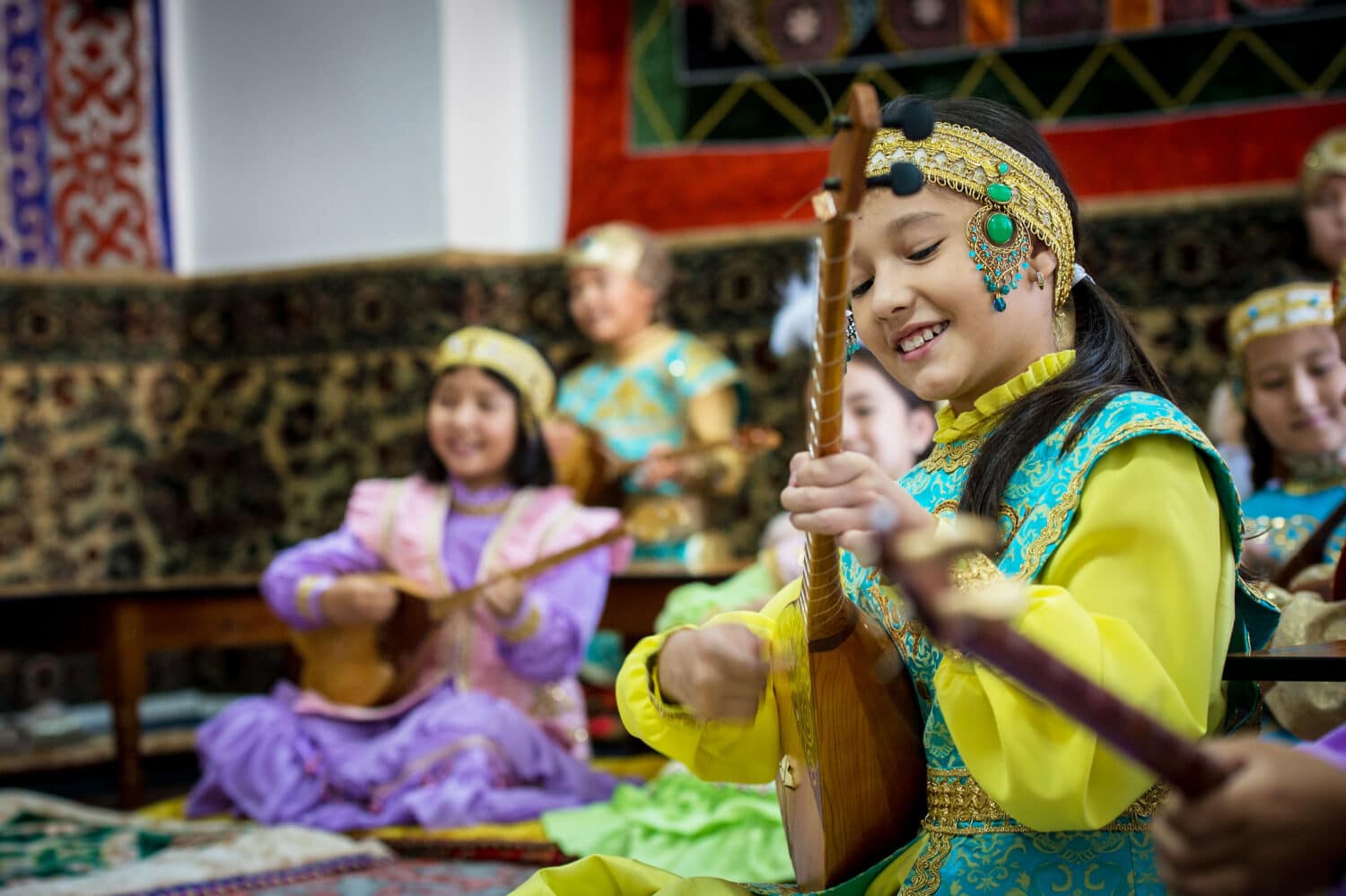
The Dombyra: The Kazakh’s Musical Soul
The dombyra (домбыра) is a lute-style instrument. It is an ancient and quintessential piece of Kazakh culture and identity. In its most popular form, the dombyra has two-strings strung down a long, skinny neck and a pear-shaped body, flat at the front and rounded on the backside. The standard English spelling of dombra is taken […]
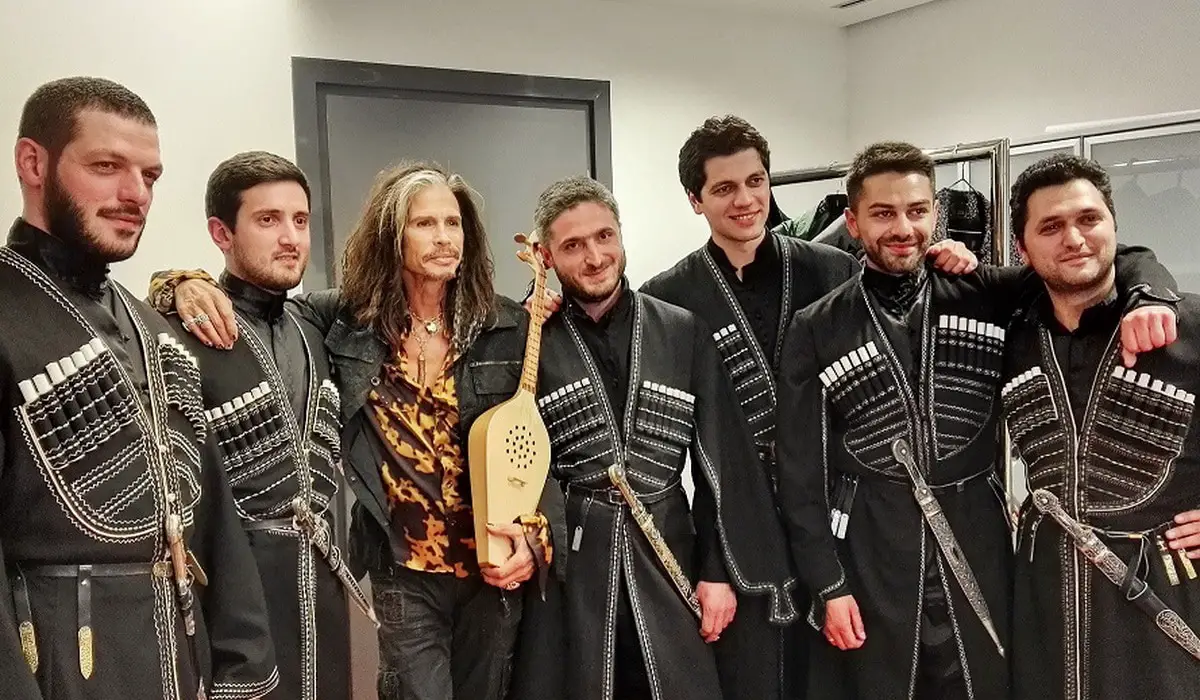
Six Georgian Bands Bringing Traditional Polyphony into the Pop Music Age
Georgian polyphonic singing, added to the UNESCO Representative List of the Intangible Cultural Heritage of Humanity, is a musical technique in which a single song has several melodies, each sung concurrently, with no one tune dominating the others. In Georgia, the style varies by region, but the practice reflects both military, folk, and religious culture. […]
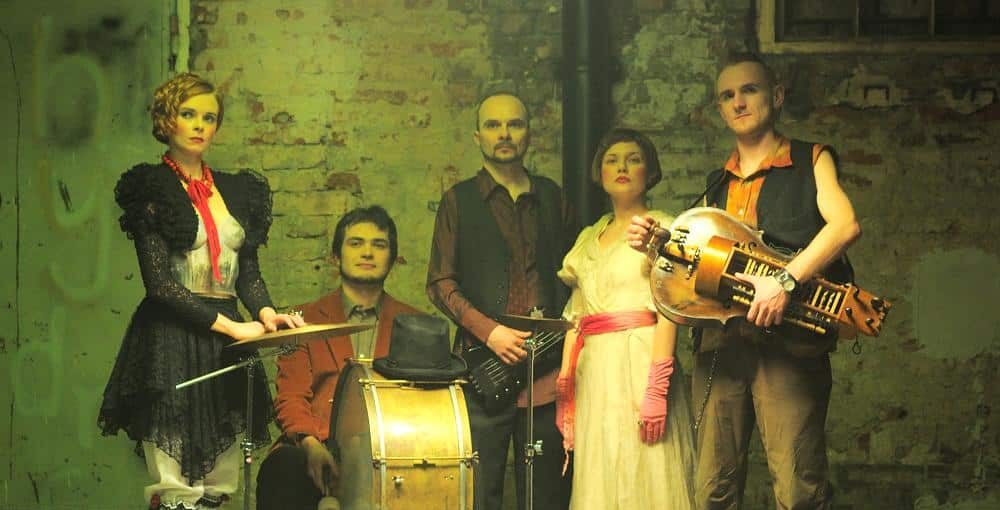
Żywiołak: Pagan Rock from Poland with a Modern Mindset
Żywiołak, initially formed in Warsaw in 2005, is a Polish folk rock band steeped in mythos. Its name references the Elemental, a magical being said to harness the power of nature in the form of air, fire, water, or earth. Their lyrics sing of epic battles (in Wojownik, or Warrior) and explore the traditions of […]
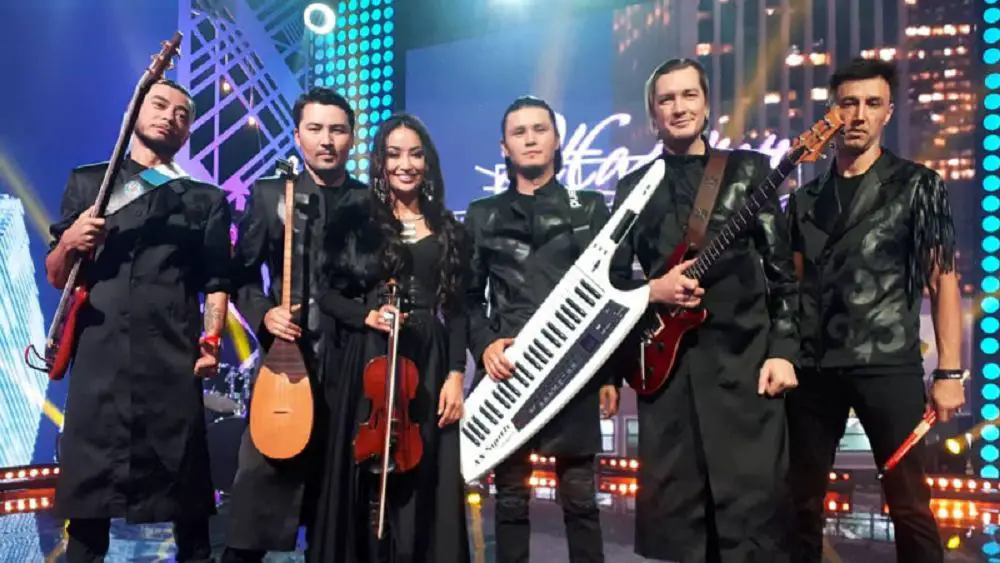
5 Bands Bringing Traditional Kazakh Style to Modern Rock
Here are five Kazakh bands working to bring traditional Kazakh instrumentation and musical styles into modern music. Roksonaki Seamless Kazakh Folk Rock Roksonaki is a Kazakh band that was formed in 2006. Its name means “lightning” in Kazakh, chosen to represent the band’s energetic and electrifying musical style. They are known for their unique fusion […]


